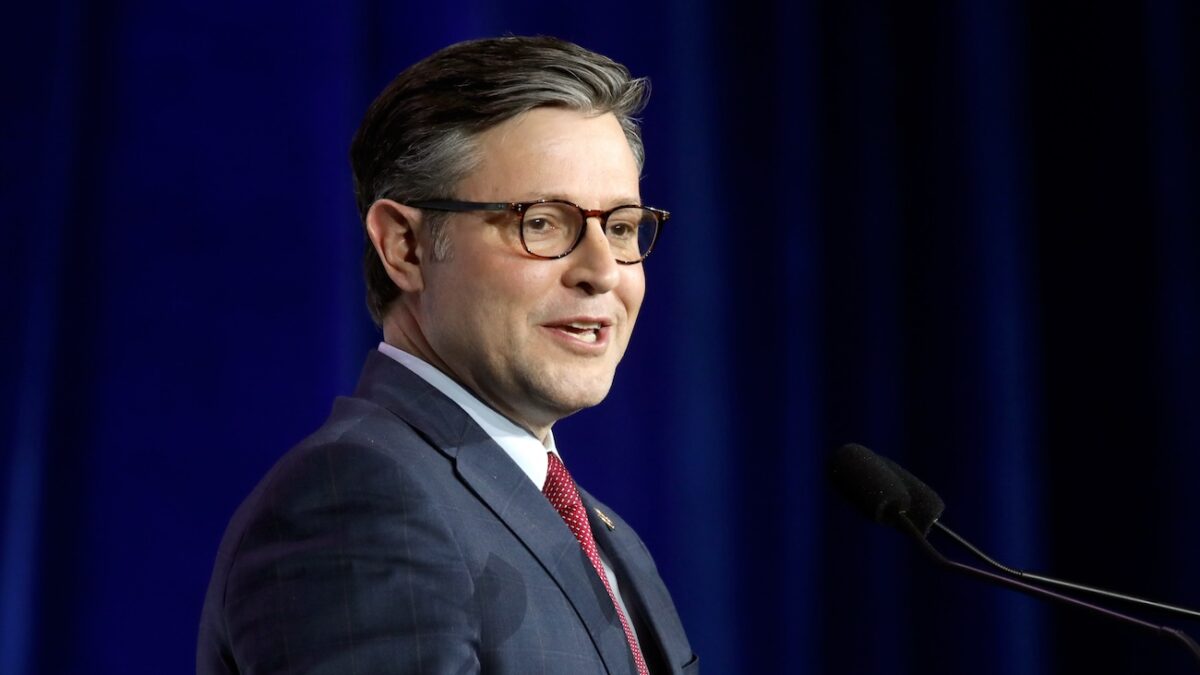
Since 2012, when President Xi Jinping came to power, China has been cracking down on what little free speech the nation has recently enjoyed. Notable examples include harrassing foreign nonprofits—a new law requires them to register with the government, disclose detailed financial information, and submit to police searches—and threats against those who make economic forecasts and report data the government deems too negative.
It’s an unfortunate reminder of the nature of authoritarian regimes. To control the economic and political lives of their subjects, they must at some point resort to censorship.
To its credit, the Obama administration has urged China to “respect the rights and freedoms” of nonprofits, businesses, journalists, and other groups, according to the Wall Street Journal. The administration seems to understand that harassing groups for advocating policy changes or threatening legal action against those who report inconvenient truths is no way for a civilized nation to conduct itself.
It would be nice if the administration were willing to apply the same lessons here at home. As the climate-change investigations of ExxonMobil show, many state attorneys general and other U.S. officials don’t respect freedom of speech any more than the Chinese government. The tactics they are using bear a striking resemblance to China’s efforts to censor speech.
This Isn’t Fraud, People
No doubt that sounds hyperbolic. After all, the United States is a far cry from China. We are told the investigations of ExxonMobil are based on allegations of fraud, not any effort to silence speech. As New York Attorney General Eric Schneiderman, one of the leaders of the investigations, has said, “the First Amendment . . . does not give you the right to commit fraud.” He is certainly right about that. No one has the right to violate the rights of others, even if using speech to do it.
But governments that want to censor speech always manufacture plausible-sounding rationales for their actions. China has claimed it is targeting foreign nonprofits in order to “protect national security.” The fraud allegations against ExxonMobil may sound more plausible, but they don’t stand up to even casual scrutiny.
Fraud is a form of theft—in essence, it is theft by deceit. To commit fraud, the perpetrator must intentionally misrepresent a fact that is material to a transaction, the victim has to reasonably rely on that misrepresentation, and the misrepresentation has to cause the victim actual damages. The arguments against ExxonMobil don’t come close to meeting these conditions.
First, what facts are allegedly being misrepresented? The claim, based on exposés done by Inside Climate News and the Los Angeles Times, is that Exxon knew back in the 1970s that humans were causing catastrophic global warming. But we don’t even know that now. What we have, instead, are predictions about what might happen sometime in the future based on climate models that have been consistently wrong.
It’s true that ExxonMobil conducted research on global warming in the ’70s and ’80s and that some of its scientists expressed concerns over the possible consequences. That put it in the same position as pretty much everyone else who was examining the issue. As David Middleton, writing at the blog Watts Up With That, cleverly put the point: “Way back in 1982, Exxon knew what [NASA scientist James] Hansen knew. They knew that CO2 would cause nearly twice as much warming as would actually transpire over the subsequent 30 years.” In other words, ExxonMobil was just as wrong about predictions of catastrophic global warming as everyone else.
Damages Can’t Be Entirely Made-Up
This illustrates something about the climate change debate that makes the charge of fraud absurd: it’s not clear what impact humans are having on global climate or what the consequences will be. As many people have argued, it’s just as plausible that the effects of global warming will be modest or even beneficial as it is that they will be harmful. In short, the extent and impact of global warming is not a “fact” one can misrepresent. It’s part of a debate over an exceedingly complex scientific issue. It doesn’t matter how many scientists, politicians, and celebrities claim global warming will be a catastrophe. Disagreeing with them is not fraud.
Second, no reasonable person has taken any action on the basis of what ExxonMobil has or hasn’t said. The debate over global warming has raged now for decades. All sides’ views are widely known. No one who buys gas or stock from ExxonMobil can reasonably claim he ignored this very public debate and focused only on ExxonMobil’s views. Laws against fraud are not an excuse for ignorance.
Third, what, exactly, are the damages? If stockholders have anything to worry about, it’s that the government will drum ExxonMobil out of business, but that isn’t the company’s fault. People who buy gas from ExxonMobil are free to walk or ride their bikes. But so long as they drive cars, they are part of the very problem oil companies are accused of causing. Another principle of law is that you don’t have a claim for damages when the cause of those damages is you.
In any event, the alleged harm from global warming is entirely speculative. It’s based on predictions by people who have distinguished themselves by being consistently wrong, and even if they get lucky and turn out to be right, the warming they’ve predicted won’t happen for many decades or even centuries. Laws against fraud don’t protect people who don’t yet exist against alleged damages that have not yet occurred.
These Are Intimidation Tactics
But I’m being far too charitable to the state attorneys general involved in the investigations. Their legal arguments aren’t meant to be taken seriously, which brings me to the next parallel with authoritarian regimes: their intimidation tactics. The actions against ExxonMobil are not designed to prevent fraud; they are designed to scare oil companies into submission and silence dissent. Authoritarians know they can’t shut everyone up, and the authoritarians at the center of the ExxonMobil investigations know the First Amendment prevents them from outlawing dissent on global warming directly. So, like the Chinese government, they threaten a few on the theory that everyone else will self-censor.
That’s the purpose of the demand from Sen. Sheldon Whitehouse (D-R.I.) and others last year for information from nonprofit organizations like the Cato Institute, and of the subpoenas demanding ExxonMobil produce communications with nonprofits and others going back decades. Human rights advocates have criticized China’s harassment of foreign nonprofits, because they understand that requiring groups to disclose confidential information and submit to searches will chill their speech. At least the foreign nonprofits that violate China’s law only stand to get kicked out of the country. If we take the arguments against ExxonMobil seriously, the policy organizations that are wrapped up in the investigations are involved in a wide-ranging criminal conspiracy. They could face crushing fines and even jail time.
Perhaps the most outrageous aspect of this climate inquisition is that it targets companies whose products have produced incalculable benefits for mankind. Fossil fuels helped usher in the industrial age, lifting most of mankind out of crushing poverty. Yet climate alarmists brand fossil fuel companies and their allies “deniers” and call for them to be imprisoned. Why not just refer to them as “enemies of the state” and conduct a few purges?
Commenting at the press conference that launched the investigations, Massachusetts Attorney General Maura Healey said “there’s nothing we need to worry about more than climate change.” Actually, there is. Despotic government. You don’t need complicated models to figure out what happens when governments censor speech. The evidence on that question is solid.









